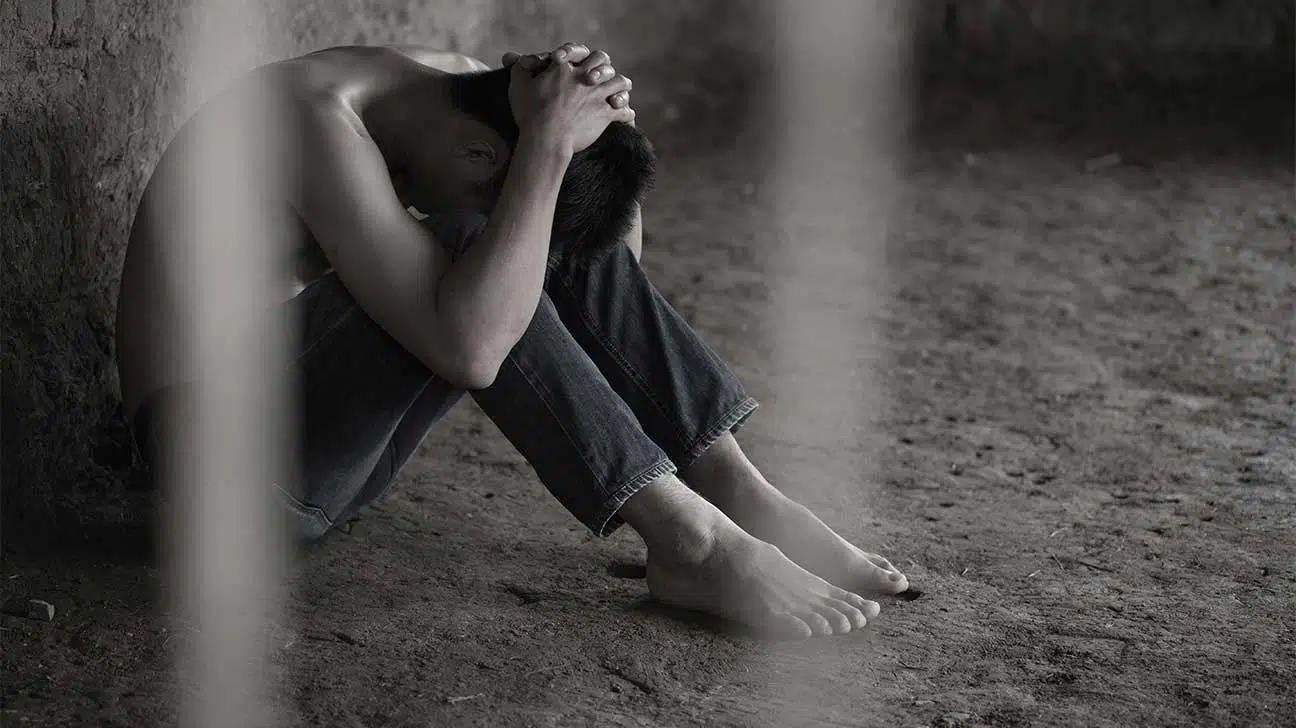Crack Cocaine Withdrawal Symptoms And Stages
Crack cocaine use may create intense withdrawal symptoms such as nightmares, fatigue, and cravings. Knowing how to manage these symptoms can make the detox process easier for people in recovery.

Crack cocaine is made from powder cocaine, but because it is a smokable drug, the resulting high is both shorter and more intense than the high that results from powder cocaine.
Because it contains powder cocaine, or “coke,” crack cocaine withdrawal shares many of the same symptoms as coke withdrawal.
However, the withdrawal process may begin more quickly or feel more intense due to the powerful short-term effects of crack.
What Causes Crack Cocaine Withdrawal?
Many people with a crack cocaine addiction desire to stop cocaine abuse and begin a sober life. However, after crack use, withdrawal symptoms may cause a person to return to the drug for relief.
Crack cocaine withdrawal results from drug dependence and the strong effects it has on the brain and body.
Drug Dependence
After enough drug abuse, a person’s brain and body may become dependent on illicit substances, which may cause them to consume drugs in increasingly large amounts.
As a result, they may face a higher risk of cocaine overdose symptoms.
In the direst scenarios, friends and family members may face the reality of losing a loved one to addiction.
Compensation For Drug Use
Drug use affects many systems in the body, including the brain’s dopamine pathways, which influence how people process rewards. As the brain begins to rely on drug use, it will adjust to compensate.
For example, because drugs such as crack cocaine release large amounts of dopamine, the brain will make itself less sensitive to dopamine.
Eventually, because of these adjustments, a person will experience side effects when they stop using the drug.
These side effects can become so intense that the person no longer uses the drug to get high. Instead, they need the drug just to feel “normal.”
Crack Cocaine Withdrawal Symptoms
Crack cocaine withdrawal may produce both physical symptoms and psychological symptoms.
Those symptoms may include:
- disrupted sleep patterns (insomnia or excessive sleeping)
- vivid nightmares
- fatigue
- lethargy
- mental health issues such as depression
- intense cravings
- mood swings
- agitation
- difficulty concentrating
- increased appetite
- suicidal thoughts
Crack Withdrawal Timeline
Crack cocaine withdrawal often follows a general timeline. However, this timeline varies from one person to the next.
Several factors impact cocaine withdrawal stages, including metabolism, the amount of time that a person has used the drug, addiction severity, and the amount of cocaine in the system.
Stage One
When a person stops using crack cocaine, their body will enter cocaine detox, which is the period of time when the drug leaves the body.
The first symptoms of crack cocaine withdrawal may begin within a few hours of stopping the drug. However, some people may not experience symptoms for a full day or longer.
Initial symptoms usually include mental health effects such as agitation and mood swings. Many people feel an intense need for sleep during this stage.
Stage Two
After the initial “crash” from stopping cocaine use, withdrawal symptoms may become more intense for several weeks.
Cravings may intensify during this period, and a person may begin to experience symptoms that they did not experience during the first stage.
Stage Three
The final phase of cocaine withdrawal is often called the “extinction” phase. By this time, the drug has left the body, and the worst withdrawal symptoms have subsided.
However, a person may still experience occasional cravings.
During this stage, people in recovery can minimize their risk of relapse by attending therapy and understanding their potential triggers.
Friends and family members can help by learning the signs of relapse and encouraging their loved ones to return to treatment if necessary.
Post-Acute Withdrawal Syndrome
Some people with crack cocaine addiction may also experience post-acute withdrawal syndrome (PAWS).
Not everybody who detoxes from crack cocaine will experience PAWS. The risk is higher for people who have abused cocaine heavily or for a long time.
PAWS occurs when a person continues to experience signs of withdrawal even if they have not used the drug for weeks or even months. Therapy and medication may help ease PAWS symptoms.
How To Detox From Crack Cocaine Safely
Crack cocaine withdrawal is often less dangerous than other types of withdrawal, such as withdrawal from alcohol or opioids.
Nevertheless, the most acute withdrawal symptoms may require hospitalization or other forms of treatment. The safest way to detox is to do so with the help of medical professionals.
Those who detox from crack or any other form of cocaine should be prepared to seek emergency healthcare if necessary.
Many people choose to detox at a treatment center, which is an option that has many benefits.
For instance, it minimizes the person’s chances of relapse, as they will have no way to access drugs during crack cocaine addiction treatment.
Furthermore, doctors at the treatment center may prescribe medications to ease withdrawal symptoms.
Find Recovery From Crack Cocaine Substance Abuse
Crack cocaine addiction is a difficult disorder, and withdrawal symptoms can make this disorder even more complex.
Fortunately, substance use disorders and their withdrawal symptoms are treatable.
Spring Hill Recovery Center offers inpatient and outpatient treatment programs to help people overcome drug addiction.
If you need addiction treatment or want to know how to help a loved one with an addiction, contact Spring Hill for more information today.
- National Institute On Drug Abuse — What Are The Long-Term Effects Of Cocaine Use? https://nida.nih.gov/publications/research-reports/cocaine/what-are-long-term-effects-cocaine-use
- National Library Of Medicine — Cocaine Withdrawal https://medlineplus.gov/ency/article/000947.htm
- UCLA Resnick Neuropsychiatric Hospital — Post-Acute Withdrawal Syndrome https://www.uclahealth.org/resnick/post-acute-withdrawal-syndrome


